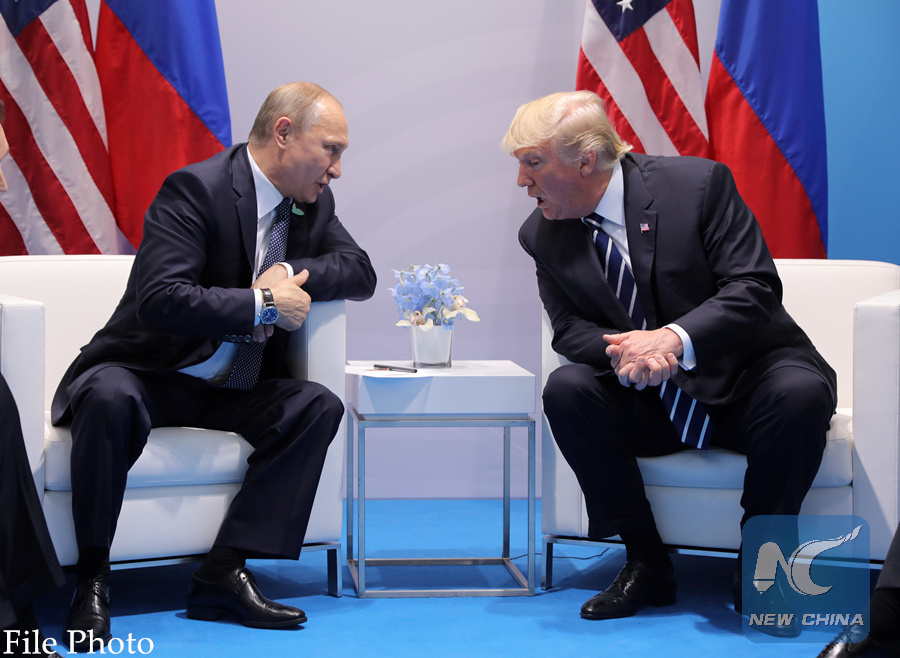
U.S. President Donald Trump speaks with Russian President Vladimir Putin during their bilateral meeting at the G20 summit in Hamburg, Germany July 7, 2017. (Reuters Photo)
MOSCOW, May 8 (Xinhua) -- Moscow-Washington ties are unlikely to thaw in Vladimir Putin's new tenure in office, although Russia's relations with some European Union (EU) countries may recover, analysts said, adding that ties with China will continue to flourish.
Putin took an oath of office on Monday to start his fourth term as Russia president after winning a landslide victory in the March 18 presidential election with a record 76.67 percent of the vote.
Putin vowed to focus on domestic issues in the next six years, including economic expansion and making technological breakthroughs, but possible changes in Russia's relations with the world's major countries are being widely scrutinized given their influence on regional and global issues.
"In the period of Putin's new term, most likely there will be no significant changes in Russian-U.S. relations," said Alexei Mukhin, director general of the Center for Political Information, a Moscow-based think tank.
"There is simply no immediate prospect of getting away from a direct competitive clash between the United States and Russia. We are doomed to this conflict," he said.
In his view, attempts by both countries to iron out their differences in the Middle East, Central Asia and Europe were unsuccessful.
Azhdar Kurtov, chief editor of the journal "Problems of National Strategy" of the Russian Institute for Strategic Studies, was also pessimistic about Moscow-Washington ties, saying, "there is no basis for their improvement."
The United States has resorted to more and more stringent actions against Moscow, a serious challenge because Russia has not fully recovered from the aftermath of the collapse of the Soviet Union, Kurtov said.
However, analysts expect changes to occur in Europe. Some EU countries, especially Germany, may strengthen cooperation with Russia, Mukhin said.
"The desire of Europeans to pursue a much more sovereign foreign policy not bound by the so-called Atlantic solidarity has aroused interest on the part of the Russian leadership. So contacts will be restored and their intensification will be obvious," he said.
Kurtov was more cautious about a reconciliation between Russia and the EU, citing how sanctions remain in place.
For the EU, the United States is still a greater priority in foreign policy than Russia, but the bloc is not ready to adopt more stringent measures against Moscow, Kurtov said.
Mukhin and Kurtov hailed Russia-China relations.
In the east, Russia plans to strengthen cooperation with China, while simultaneously strengthening contacts and intensifying trade with Japan, South Korea and Vietnam, Mukhin said.
The eastern direction provides an outlet and an opportunity to establish relations for Russia when it has difficulties in the West, according to Kurtov.
"But even if relations with the West are re-established, the eastern direction will not weaken," Kurtov said.

